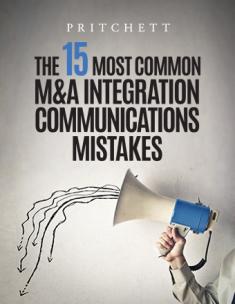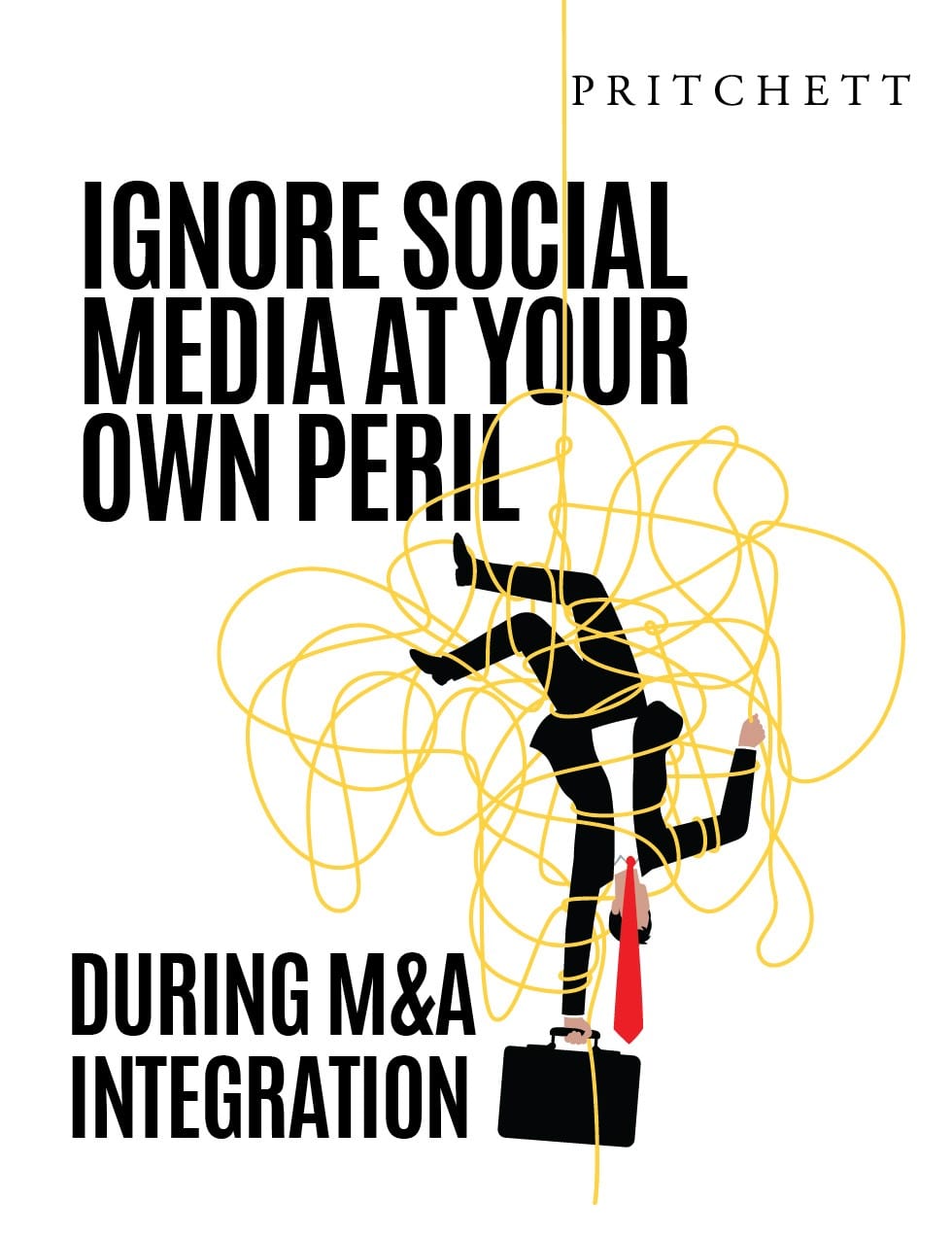Acquirers usually manage communications poorer than anything else during their integrations. Unfortunately, communication problems never just stay communication problems. They become employee morale and productivity issues.
Avoid these fifteen most common communication mistakes.
INTERNAL COMMUNICATIONS
1. Shaving the truth
Protect your credibility by "telling it like it is," no matter how painful "it" may be.
2. Failing to address the “me issues”
When employees become preoccupied about what might personally happen to them, they focus less on their work. Take care of their "me" issues in a hurry.
3. Not telling your troops there will be some course-corrections
An integration unfolds like a fast-moving, changing story. Help people understand the volatility of the situation.
4. Hoarding information and answers
If you withhold information from people, they may eventually figure it out and withhold information from you.
5. Dodging the tough issues
Don’t expect to get through the integration process without having to make some difficult decisions.
6. Making promises beyond what you control
Making a commitment you are unable to keep is like playing with live ammunition. It can blow up in your face and make you appear untrustworthy.
7. Sugarcoating the deal
Don't frame the merger as a “win-win” scenario for the entire workforce.
EXTERNAL COMMUNICATIONS
8. Letting the press take control of your story
Carefully plan your presentations, define the narrative, and stay on message.
9. Allowing competitors to tell their story about the deal to your customers first
Address any potential concerns your customers may have about the deal as soon as it is announced.
10. Using too many spokespeople
One person should be the central clearinghouse for communications to ensure consistent messaging to the media.
MISLEADING STATEMENTS
Resist the temptation to say things like:
11. “This will be a merger of equals.”
Equal implies that both companies have the same say in decisions. There is always a top dog, somebody who will make the final decision when an impasse is reached. In the real world, no deal is truly a merger of equals.
12. “The opportunities created by this combination should be exciting for everyone.”
Most employees in the acquired company will see that as a line of bull. They know some people will win while others will lose.
13. “Benefits will be better.”
Different things matter to different people. Therefore, what is “better” for some individuals may not be better for others.
14. “We will only make fair decisions.”
Be prepared to be make choices that are good for the business but will be perceived as unfair by individuals adversely affected.
15. “We will select the best of both from the companies.”
Management will not be able to deliver on this idealistic statement because employees on both sides of the deal will never be persuaded the best truly was chosen.





